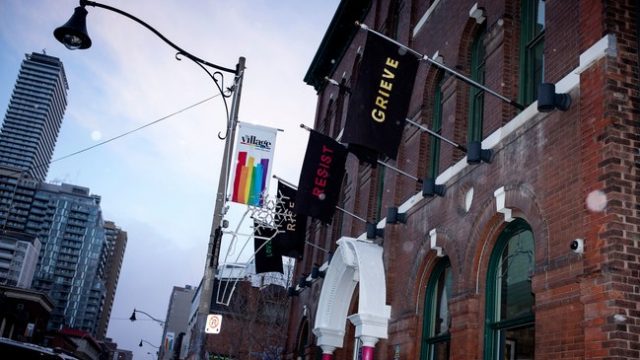Good morning, my dears! This week, I’ve found an eclectic array of articles this week, discussing a variety of things through the lens of pop culture…
Devon Sherer interviewed author and legendary profiler John E. Douglas about what pop culture gets wrong about serial killers, for Vulture on the 3rd:
“Retired FBI agent John E. Douglas is no stranger to Hollywood. Over the past three decades, his groundbreaking work as a criminal profiler has inspired characters in The Silence of the Lambs, Hannibal, and Criminal Minds, largely based around his interviews with imprisoned violent offenders. His 1995 book Mindhunter: Inside the FBI’s Elite Serial Crime Unit, co-written with Mark Olshaker, more recently led to a standout Netflix drama starring Jonathan Groff. (Groff’s character, Holden Ford, is based on Douglas.) By talking to almost every major convicted serial killer of the past 30 years, Douglas and his team have not only played a vital role in helping the FBI and other law-enforcement communities understand violent crimes, they also, perhaps inevitably, have had an influence on pop culture’s true-crime boom.”
Also on the 3rd, Sarah Larson discussed the power of the podcast Uncover: The Village at The New Yorker:
“As he investigates all of this, Ling makes fascinating headway. One of the most compelling things about this podcast—and there are many—is the sensitivity with which he seeks out and listens to the people who felt neglected for so long. ‘Uncover: The Village’ is thoughtfully produced, but it doesn’t signal to you, as many crime-related podcasts do, that it’s entertainment. Its minimal music reflects your emotions without manipulating them; Ling’s narration isn’t self-dramatizing. The series is engrossing because of its powerful story, Ling’s dogged and far-ranging reporting, its sympathetic characters, compelling scenes, and a patient, well-paced narrative. But those elements can be found in good true crime. What sets ‘Uncover’ apart is that it aims to serve something beyond its audience: more than a whodunit, the series feels like a kind of truth-and-reconciliation commission, in podcast form. What’s important isn’t the edification of those listening but the solace of those being heard.”
On the 6th Ernie Smith looked back on Sunday Night (aka. Night Music) over at Medium:
“The year that Sunday Night, originally envisioned as a musical counterpart to NBC’s SNL, debuted on the network. The show was designed to bring together a whole bunch of disparate musicians, many of whom were big names, and have them perform both older songs and newer tunes. The concept was formulated by a number of figures who had close associations with NBC during the era, including jazz musician David Sanborn, who spent time in the SNL house band and frequently guested with Paul Shaffer’s band on Late Night With David Letterman. Sanborn reportedly sold the idea to Lorne Michaels, who gave it the room to breathe on NBC, where it spent its first season. During its second season, the show was syndicated and its name was changed to Night Music, in part to allow syndicators to air it at any time of the week; during both seasons, the show was presented by the beer brand Michelob.”
Also on the 6th, Evelyn McDonnell and Elisabeth Vincentelli created a riot grrrl listening guide for The New York Times:
“Leapt upon by the media, riot grrrl disappeared almost as quickly as it materialized — too stubborn or scared to plunge or get sucked into the mainstream. But its influence has persisted, resurfacing in the last decade with the traveling art exhibition ‘Alien She,’ books including the young adult novel ‘Moxie’ (optioned by Amy Poehler’s film company), and untold numbers of bands, most famously Pussy Riot. In the wake of this riot grrrl renaissance, or resurgence, the OGs are reclaiming their place in history, and their spot on the stage.”
Aaron Freedman, a comrade at Jacobin, argued that the peasants are the most important characters on Game of Thrones on the 8th:
“But while the ‘smallfolk’ — as they are known in the world of Game of Thrones — appear mostly in the background, they are in fact the beating heart of the show. Indeed, on looking closer, we can see them as our real protagonists. It is the laboring class, after all, who makes possible the agricultural and mineral wealth of families like the Lannisters and the Tyrells. And at the same time, the core narrative of the show — war — shapes the peasants most of all. In total war, it is not the lords and ladies who see the worst horrors, but the peasants whose fields are burned and homes destroyed.”
Finally, on the 9th Diane Shipley discussed how pop culture uses motherhood as a redemption arc for career women for Bitch Media:
“Pop culture motherhood is often used to shorthand the idea that we should care about characters who were previously coded as unlikable or threatening. Last-chance motherhood is a narrative device meant to normalize them and, in many cases, to keep them from challenging the status quo. On the final season of House of Cards, President Claire Hale (Robin Wright) learns that she’s carrying her despicable late husband’s baby. Her discovery would be surprising enough even without the fact that she’s in her late 40s and has terminated her last three pregnancies. This dramatic shift in priorities is explained by the fact that producing an heir ensures she can keep her husband’s assets, and the show has fun with the idea that pregnancy has softened borderline-sociopath Claire’s hard-nosed image and sent her approval ratings through the roof.”
Enjoy!

